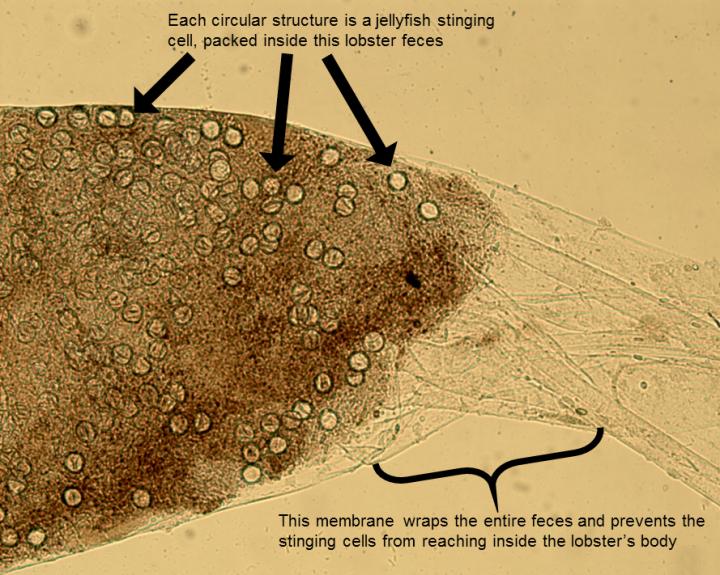
Image by Kaori Wakabayashi of Hiroshima University, originally published in Plankton and Benthos Research.
Researchers at Hiroshima University studying lobster development and working on a goal of finding food for farmed lobsters have found that the lobster feces contained a membrane protecting the lobster from stinger harm.
While the lobsters were not immune to direct jellyfish venom, when fed a diet of Japanese sea nettle tentacles, the fresh feces were wrapped in layers of a peritrophic membrane that was strong enough to prevent the stingers to actually do damage to the lobsters. The Japanese sea nettle stinging cells are able to inject their prey with venom once they are consumed.
The full story can be found at EurekAlert by the American Association for the Advancement of Science, and originally published in the journal Plankton and Benthos Research.
